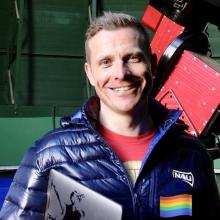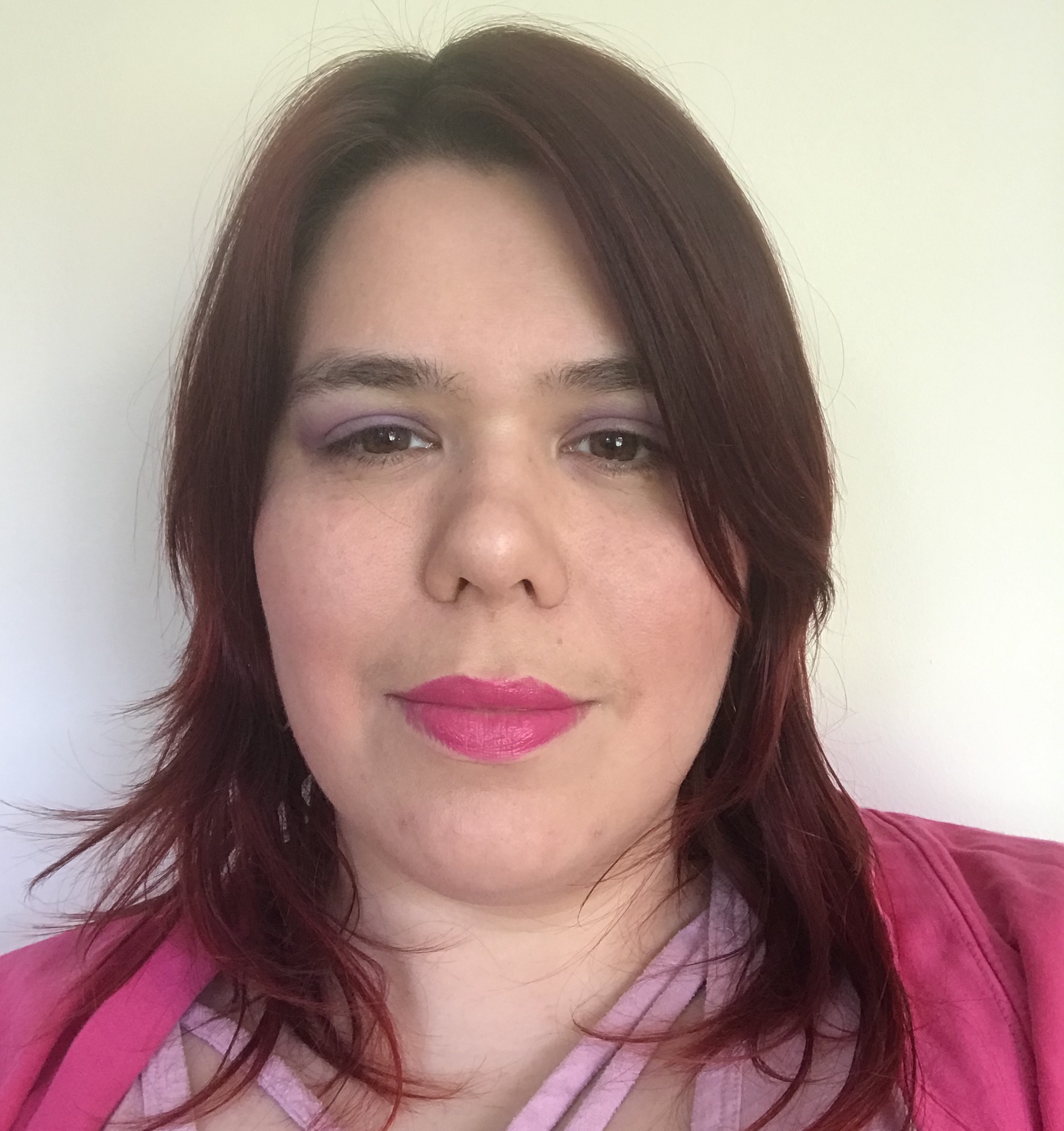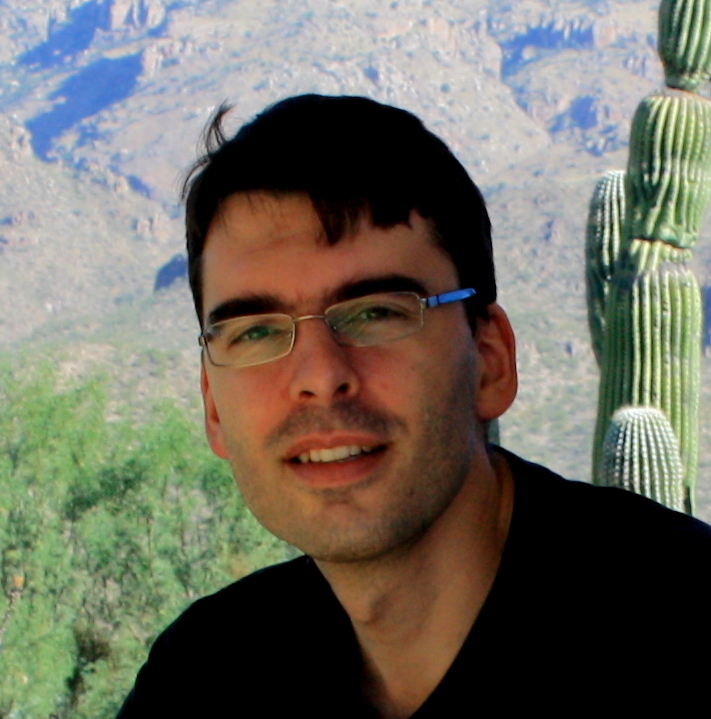Introduction to the Rubin Observatory, the Legacy Survey of Space and Time (LSST), and the LSST Solar System Science Collaboration (SSSC)
What is the Rubin Observatory and the LSST?
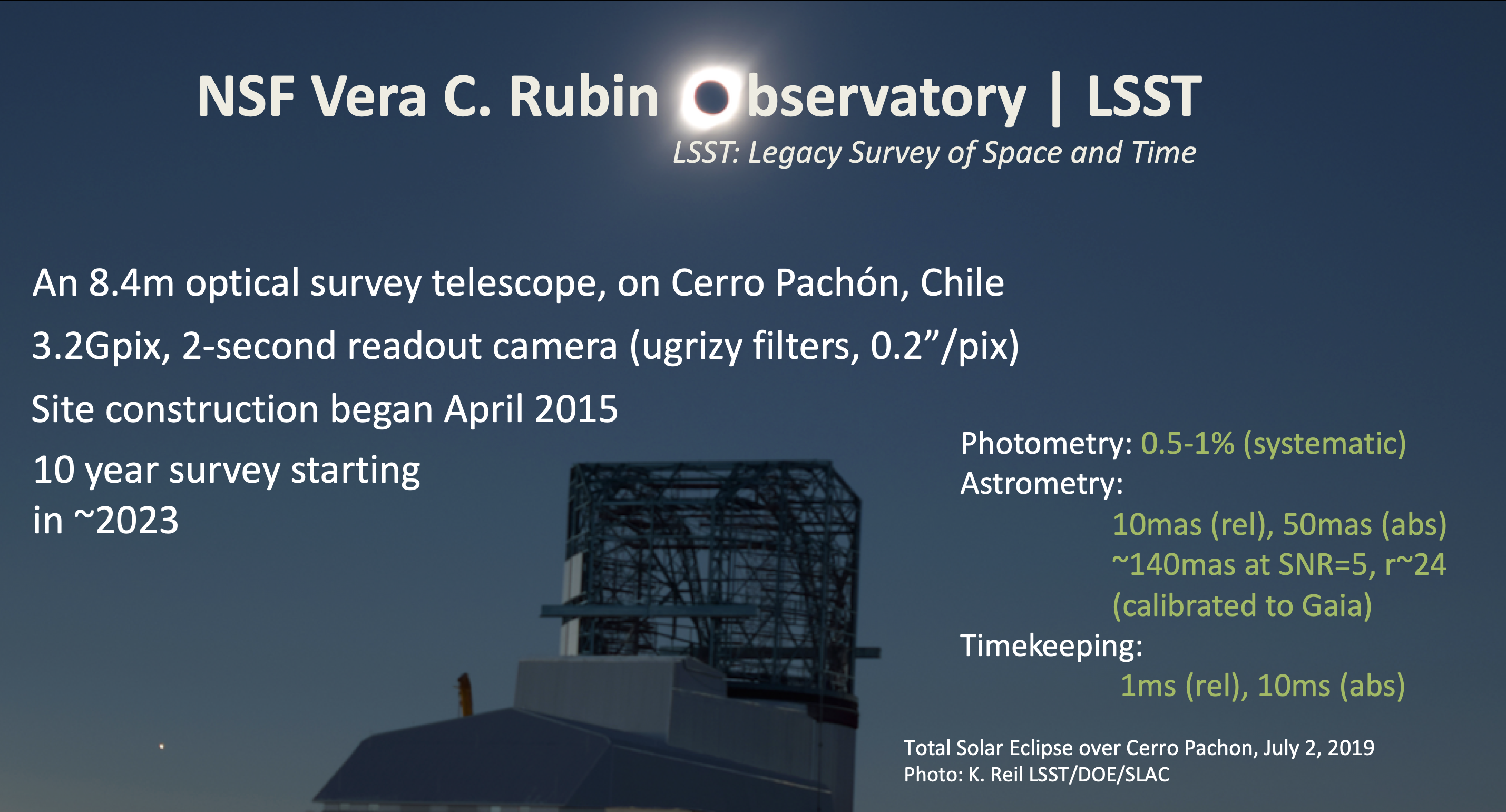
Image Credit: Rubin Observatory/Mario Jurić
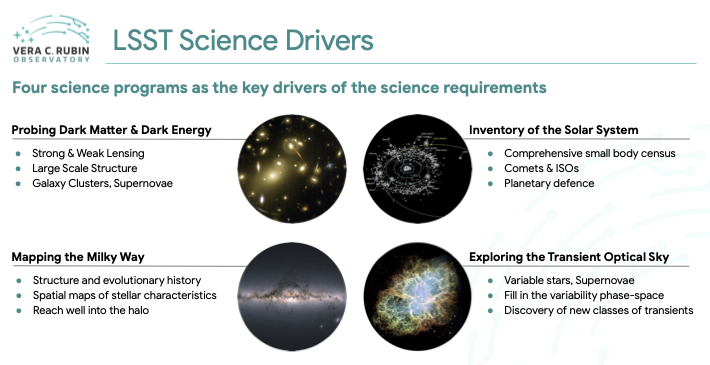
Image Credit: Rubin Observatory/Leanne Guy
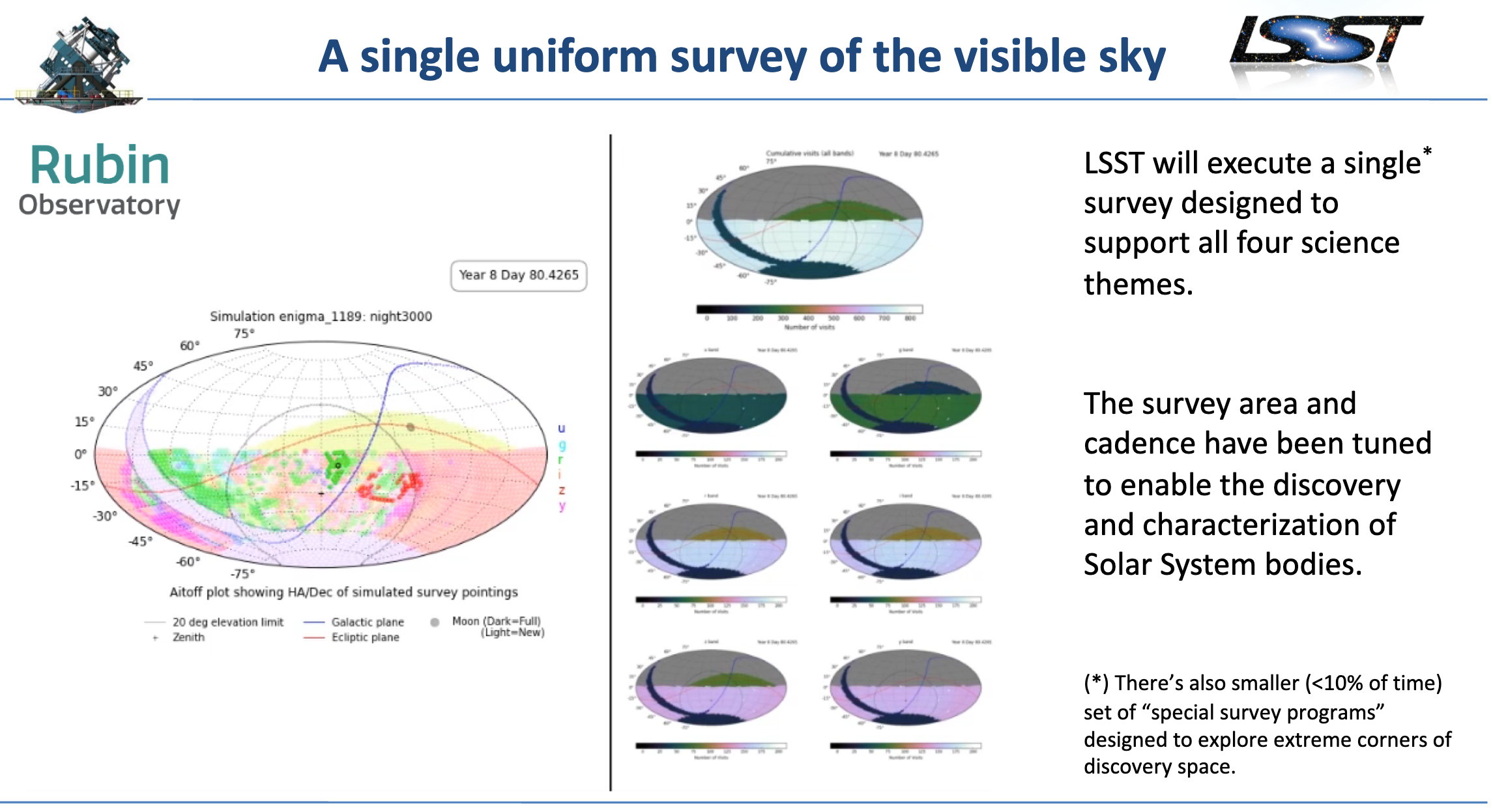
Image Credit: Rubin Observatory/Mario Jurić
The LSST cadence is not set yet. The Rubin Observatory's Survey Cadence Optimization Committee (SCOC) will recommend the initial survey cadence to the Rubin Observatory Operations for their considerationa and final adoption. More details about LSST and the Rubin Observatory can be found on the Rubin Observatory website and in this Information Booklet. You can learn more about the specific Solar System science LSST and the Rubin Observatory that will enable on the Science Cases page. More information about the expected LSST Solar System products can be found here.
What is the LSST SSSC?
The LSST Solar System Science Collaboration (SSSC) exists to both support scientists in preparing for and using the revolutionary LSST dataset and to provide recommendations to the LSST project that support solar system science. The SSSC is actively searching for new members whatever your current role in LSST or the planetary science community is. We particularly encourage early researchers to apply for SSSC membership
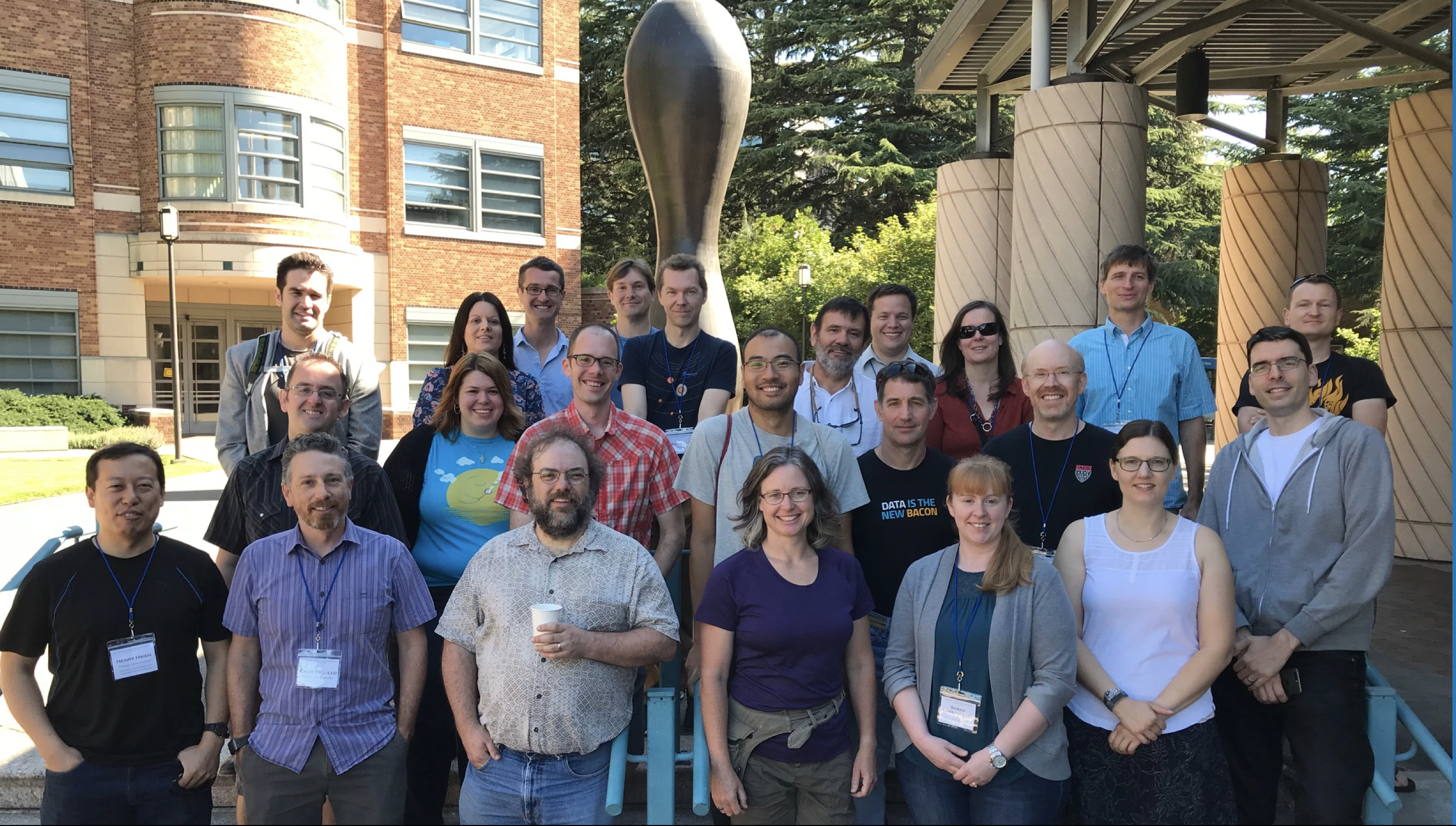
Photo from the 2018 LSST Solar System Readiness Sprint at the University of Washington, Seattle
Aim of the SSSC
The current aims of the SSSC are focusing on being prepared to do powerful science before the full survey starts in ~2023. This preparation includes developing software tools, seeking funding, and forming efficient collaborations. We are also actively participating in shaping decisions by LSST that affect our science (such as cadence optimization). As we get closer to the survey, these activities will continue to ramp up and will transition into working on LSST first science papers. The SSSC currently communicates through email lists, slack, telecons, and annual meetings.
SSSC Organization
The SSSC is led by two co-chairs and is organized into five Working Groups that serve as avenues for communication and collaboration: Near-Earth and Interstellar Objects, Inner Solar System, Outer Solar System, Active Objects, and Software/Infrastructure. There is an enormous amount of work to do... if you are interested in capitalizing on and/or contributing to LSST Solar System science, we encourage you to consider joining.
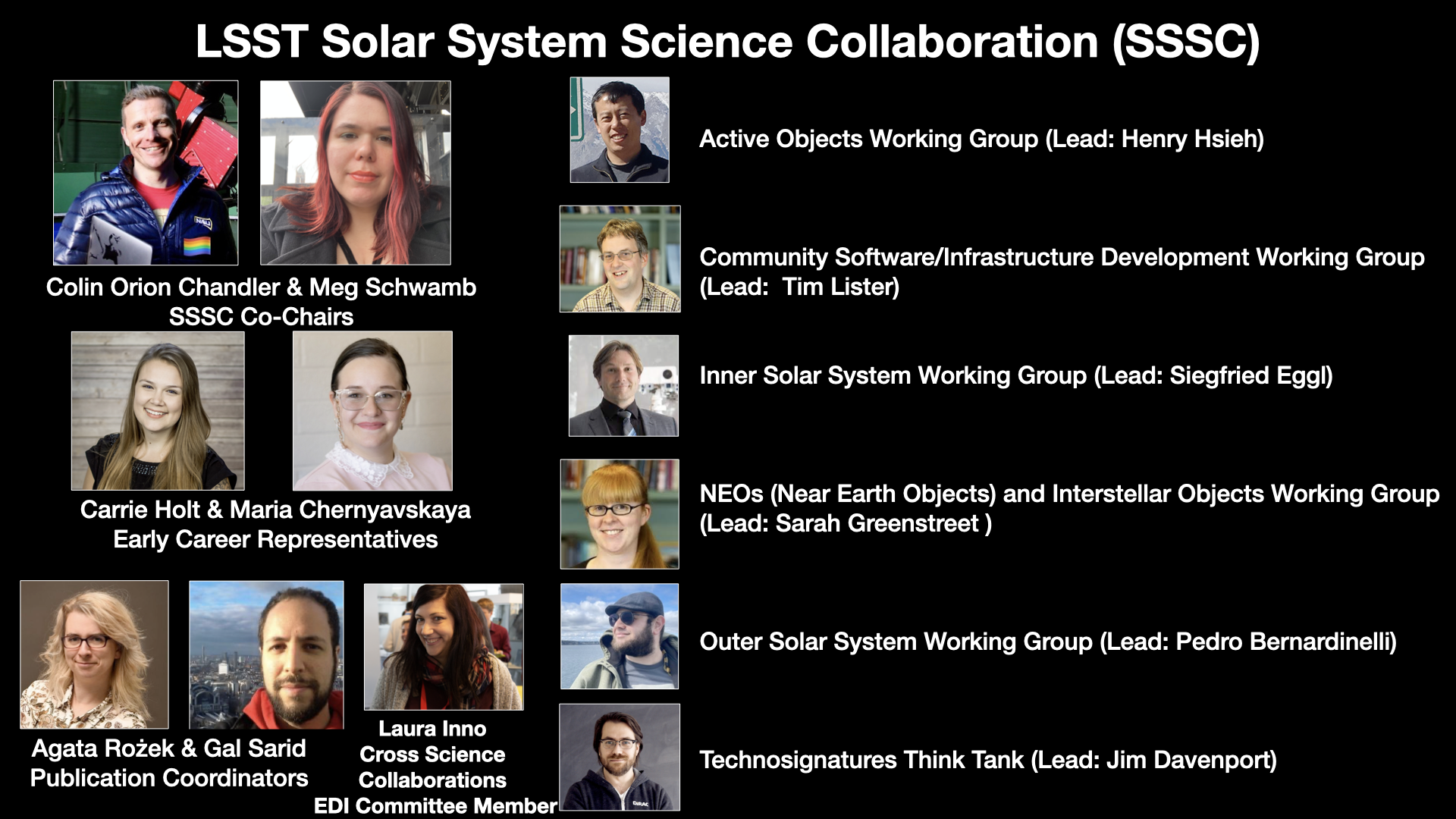
If you have any questions about the SSSC and how to get involved please get in touch with Meg Schwamb and Colin Orion Chandler (LSST SSSC co-chairs).
LSST Discovery Alliance
The LSST Discovery Alliance (LSST-DA) aims to maximize the scientific and societal impact of the LSST. The LSST-DA supports the SSSC by funding the wider LSST Science Collaborations Coordinator position and providing communication resources and logistical support to the SSSC.
